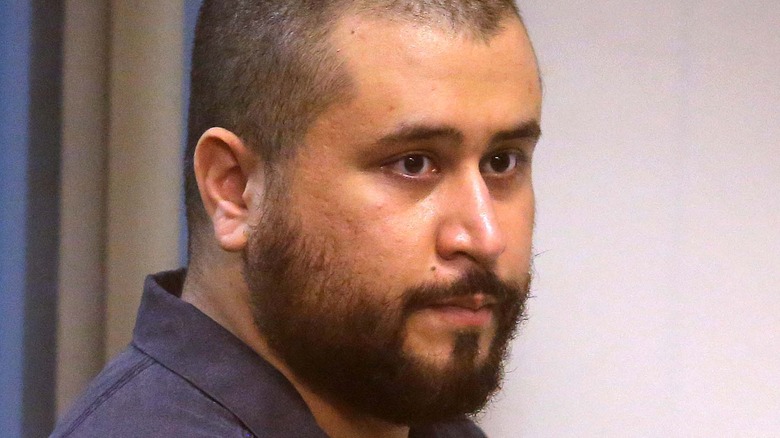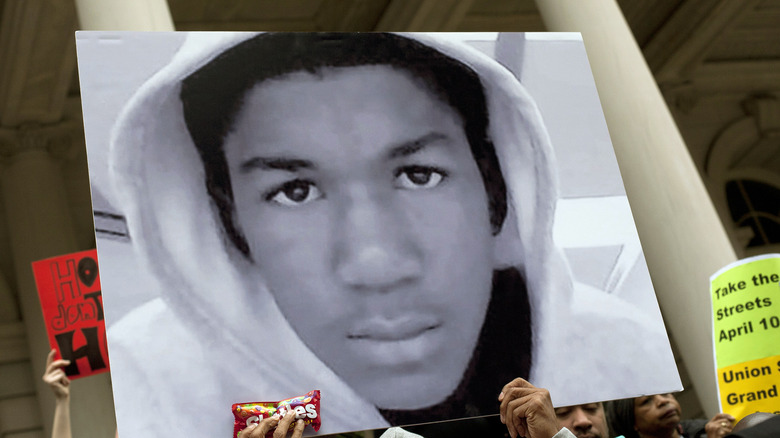The Legal Reason George Zimmerman Was Acquitted Of Murder
The names are likely familiar, even if the details have faded: in 2013, George Zimmerman was acquitted in the murder of Trayvon Martin, an unarmed Black teen who Zimmerman, a civilian neighborhood watchman, shot during a confrontation the year before. You likely know about the shooting and Zimmerman's subsequent acquittal — but why was Zimmerman acquitted to begin with?
From the beginning, Zimmerman's legal strategy rested on his claims of self-defense, according to MSNBC. According to Zimmerman, while volunteering in his neighborhood watch, he called 911 to report a "suspicious person" in his neighborhood (per CNN). He got out of his car and began to follow Martin, at which point, Zimmerman claims, Martin began to attack him. According to Zimmerman's account, after about four minutes of struggle, he shot the teenager.
Though in many states, civilians have the duty to flee from an attack outside their home, Florida has a "Stand Your Ground” law that gives gun owners the right to shoot at threats, according to NPR. Here's how that law led to Zimmerman's acquittal.
There was only one surviving witness
The "Stand Your Ground" law always allows shootings in real or perceived self-defense, which has gotten some criticism from law enforcement and prosecutors — it theoretically makes it harder to convict homicide and manslaughter cases, since a defendant can claim they were acting in self-defense, according to NPR. Since the law went into effect, both justified and unlawful homicide rates have risen.
In George Zimmerman's case, it couldn't be proved that he was not facing a threat that might have compelled him to use lethal force — he was the only direct witness to the shooting, apart from Martin. There was also the issue that he was being charged with second-degree murder, which, while not premeditated, requires a "depraved mind" acting from hatred (per Florida Senate). But proving that Zimmerman was acting out of malice was difficult — again, because he was the only surviving witness to the shooting.
There was not much physical evidence in the case as well, according to CNN. It was raining that night, and while there wasn't much blood on Zimmerman or Martin, suggesting to the defense that there was not much of a struggle before the shooting, a forensic expert told jurors that the rain could have washed more blood away. Other evidence presented by the prosecution, including the testimony of the woman who spoke on the phone with Martin as he was trailed by Zimmerman, was portrayed as not credible.

